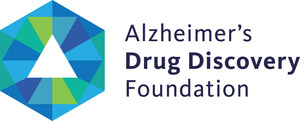NEW YORK, Oct. 29, 2020 /PRNewswire/ -- Progress in Alzheimer's disease took a big step today with C2N Diagnostics' announcement that the first blood test is available to help physicians with early detection and diagnosis of Alzheimer's, which marks an important milestone for treatment and patient care of the disease.
"This is really an important advance. You can now walk into your doctor's office to get a blood test to help detect Alzheimer's disease," said Howard Fillit, M.D., Founding Executive Director and Chief Science Officer of the Alzheimer's Drug Discovery Foundation (ADDF). "This test answers a critical need for less costly and accessible diagnostic testing in memory and dementia care."
PrecivityAD™ measures levels of amyloid in the blood, requiring a very small blood sample (as little as a teaspoon) from the arm. The blood samples are sent to the company's St. Louis lab, which will process the tests prescribed by physicians and deliver them results to aid in the diagnostic process.
The ADDF has long believed the path to approved Alzheimer's treatments starts with a better way to diagnose patients. The ADDF provided $2.8 million in funding to C2N over the last decade, including $2.2 million to accelerate clinical validation and accreditation for this amyloid blood test.
"Investing in biomarker research has been a core goal for the ADDF because reliable, accessible and affordable biomarkers for Alzheimer's diagnosis are critical to our ability to find drugs to prevent, slow and even cure the disease," said Dr. Fillit. "Our funding helped bring the first PET scan to market and now has helped bring the first blood test to market."
The ADDF's early seed funding led to the first FDA-approved diagnostic test for Alzheimer's disease in 2012, the Amyvid™ PET brain scan. This scientifically revolutionary scan changed the way clinical trials are done, but its high costs have limited its use in clinical practice.
As more therapies are developed focusing on novel targets implicated in Alzheimer's, such as inflammation, the need to expand our arsenal of biomarkers also grows. The goal is to take one blood sample and measure for several biomarkers of Alzheimer's, which will allow for the development of individualized treatments based on a patient's unique pathology. This is why the ADDF initiated the Diagnostics Accelerator (DxA), launched in 2018, which has mobilized commitments totaling $50 million from leading philanthropists to fast-track the development of simple, cost-effective diagnostic tools and biomarkers, such as blood tests, eye scans and digital technologies.
"There are several blood tests in development for beta-amyloid, as well as other targets that will further revolutionize the development of new drugs for Alzheimer's disease the same way a blood test for cholesterol did for heart disease. With new biomarkers, precision medicine is possible," said Dr. Fillit.
For additional information, view the C2N Diagnostics press release here.
SOURCE Alzheimer's Drug Discovery Foundation

Related Links
WANT YOUR COMPANY'S NEWS FEATURED ON PRNEWSWIRE.COM?
Newsrooms &
Influencers
Digital Media
Outlets
Journalists
Opted In






Share this article